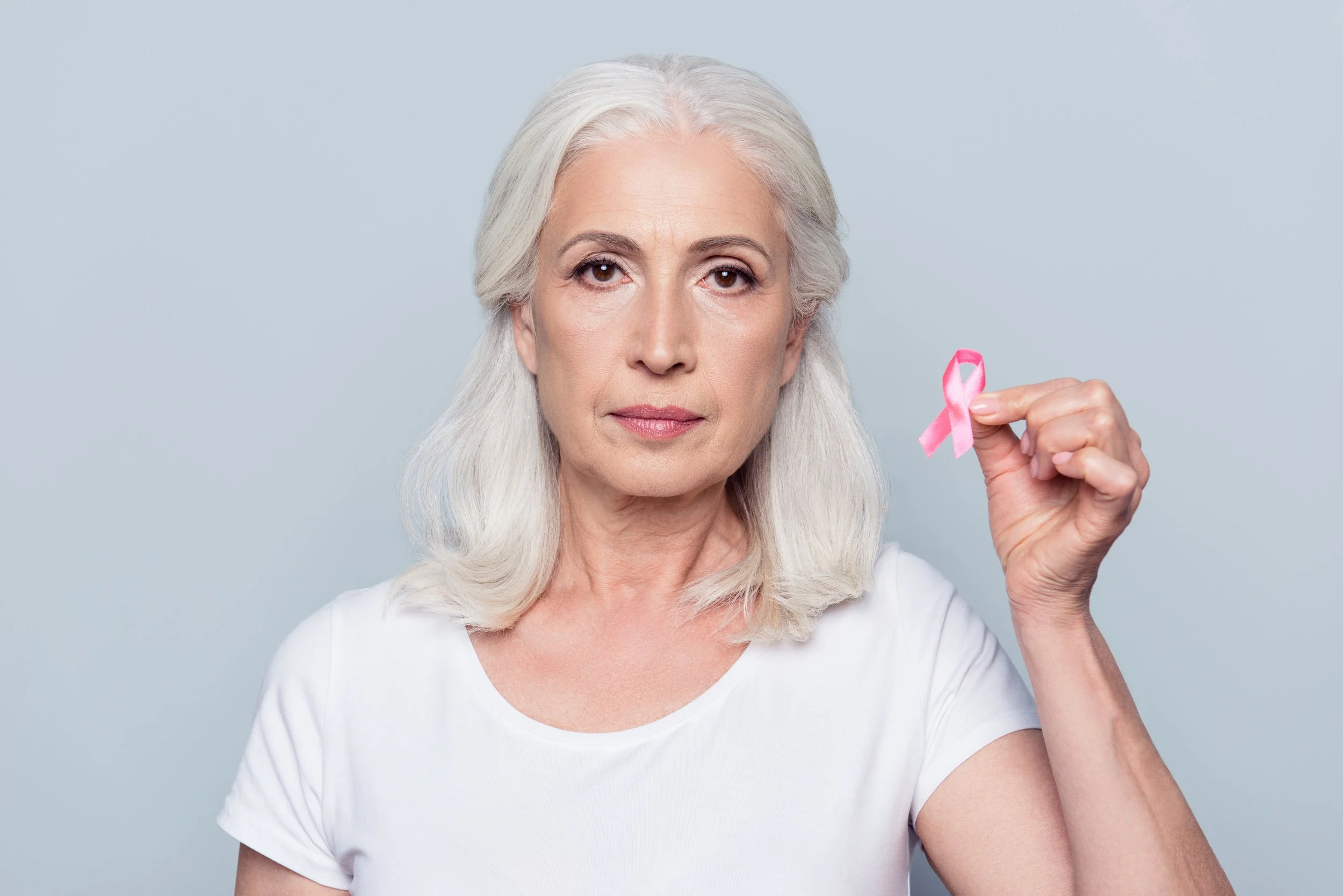October is Breast Cancer Awareness Month
There are some health awareness months that need revisiting year after year. Unfortunately, Breast Cancer Awareness Month is one of them.
More than 30 million women in the U.S. have or have had breast cancer. Of those, more than 50% are over 60, and more than 20% are over 70. Cancer is a relentless enemy, and as long as those numbers remain high, we're going to keep bringing you useful information and assistance.
Last year we used this space to discuss under-diagnosis and under-treatment of older breast cancer patients and the proactive steps that caregivers can take to detect and fight the disease. We included links to the Centers for Disease Control and Prevention's Breast Cancer Awareness page and a downloadable symptoms and self-check guide from the National Breast Cancer Foundation. We have repeated those links below, and we encourage you to read them and revisit our October 2021 blog post. But this year, we'd like to focus on the special responsibilities and burdens placed on family caregivers when their senior loved ones receive breast cancer, or other cancer, diagnoses.
Let’s start with what cancer is — and why treating it remains difficult for both patients and caregivers.
Cancer is a group of diseases involving abnormal cell growth that can spread to other parts of the body. Unlike bacterial or viral infections, cancer cells are not foreign bodies that can be recognized, isolated and eliminated. Cancer cells are human cells. They are part of the body that created them. And cancer treatments, like chemotherapy and radiation, cannot always distinguish between cancerous cells and healthy cells. Too often, cancer treatments are a balancing act between how much trauma is needed to eradicate the cancer, and how much trauma the patient’s body can take.
This balancing act makes cancer treatment a particular concern for elderly patients. Older bodies just don't have the same reserves that younger bodies have. When you factor in illnesses common among seniors like diabetes and heart disease, the situation becomes even more fraught.
We do not want to discourage anyone from pursuing treatment. Cancer can be defeated at any age!
But it is important for senior caregivers to know that cancer treatments will impact their older loved ones more severely than they would younger patients, and recovery after treatment will be a slower process as well. As a caregiver to an older loved one with cancer, you are in for a marathon, not a sprint. It's important to be prepared, for your health and well-being as well as for theirs. According to a 2012 research study, high incidences of depression, anxiety and even physical ailments were reported by the family caregivers of older adults with cancer. Caregiver burnout is a real thing. Caregiver burnout when cancer is involved… well, we want to help you avoid that at all costs.
That’s why this year our cancer-fighting links below include a downloadable PDF with helpful information on maintaining your own mental and physical health, as well as six tips to keep you on top of your loved one’s care during their treatment. It’s a great document and we encourage you to download and read it — but we’d like to offer an additional tip:
You don’t have to do this alone.
Cancer treatment can involve tracking a dizzying array of symptoms, medications and appointments. Those are all tasks that the compassionate caregivers at Overture Home Care can handle for you. We can also help with cooking, shopping, light housework — and even companionship so that you can take a well-earned rest to recharge your own mental health.
Please call us for a free consultation 24/7 at (817) 887-9401. We can help you turn that cancer marathon into a much more manageable relay race.
LINKS:
Caregivers of Older Adults with Cancer, 2012 research study https://www.ncbi.nlm.nih.gov/pmc/articles/PMC4096853/
Centers for Disease Control and Prevention Breast Cancer Awareness Page https://www.cdc.gov/cancer/dcpc/resources/features/breastcancerawareness/index.htm
National Breast Cancer Foundation, Inc. Symptoms Guide Download Page
https://www.nationalbreastcancer.org/know-the-symptoms/

